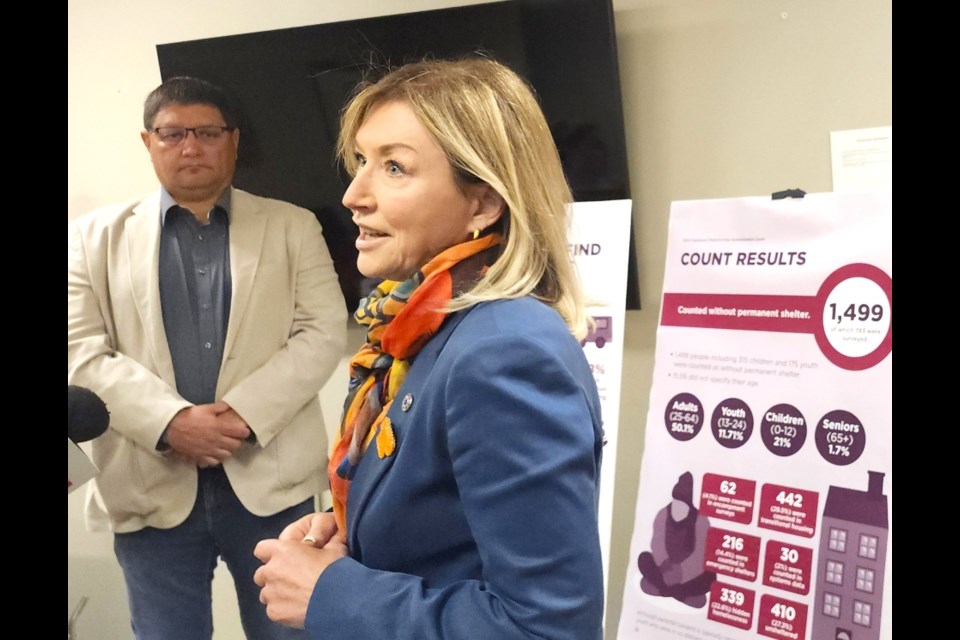SASKATOON — Mayor Cynthia Block described the Point-in-Time Count data, showing nearly 1,500 people in the city are homeless, as devastating and unacceptable, and quickly called for decisive action.
"This is a failure of systems, but it's also a chance to do better, and faster. Eighty per cent of those experiencing homelessness here are Indigenous, and 80 per cent aren’t even from Saskatoon. That tells us something is broken far beyond our city limits,” said Block.
She believes community leaders can do better in helping people from other communities in the province or from another province who are seeking a better life in Saskatoon, which holds a distinct position compared to other cities in Saskatchewan.
Block said the issue is not just about local failures, but systemic challenges that transcend municipal boundaries, and made a plea for the provincial and federal governments to step up in a way that matches Saskatoon’s front-line reality.
"We don’t do health care. We don’t do social services, but we’re still expected to catch everyone who falls. The data is a gift of truth, harsh but necessary. Now that we see clearly, we must pivot, and we must act fast,” said Block.
Saskatoon Tribal Council Chief Mark Arcand said he was not surprised by the numbers and thanked all the volunteers who helped conduct the study, which brought out the transparency of what is being seen in the city.
“It takes a lot of people with the courage to come in, give their time to talk about, and speak with people who are experiencing homelessness in our city. Because, for me, the courage also stems from the participants who shared their stories,” said Arcand.
He echoed Block’s sentiments, adding that institutions have long underserved many Indigenous people. He believes Indigenous-led solutions would help address the cries for help that can no longer be ignored.
“We need programs designed by and for Indigenous people, because that’s where we’re seeing success. It’s May, we have to start planning for winter now. We’re not just talking about numbers. We’re talking about children out there.”
Saskatoon Westview MLA and Shadow Minister for Housing April ChiefCalf, who held a separate media conference with Regina Wascana Plains MLA Brent Blakley, criticized the provincial government for denying that affordability issues contributed to the crisis.
"This crisis is the result of choices. The facts are. They don’t want to face them. This is colonialism, racism and systemic discrimination playing out in real time,” said ChiefCalf, who worked with northern Indigenous communities for over 10 years.
“The Point-in-Time Count found 1,499 people experiencing homelessness in Saskatoon. That's nearly three times the number from 2022. That means there are now five houseless individuals for every 1,000 residents, placing Saskatoon among the worst in the country.”
She added that the people currently homeless are not just numbers but individuals—families, seniors, youth, adults and children—who are sleeping in cars, in tents or on the street, which did not happen overnight.
Blakley, the Shadow Minister for Social Services, added that the government had failed to support the Saskatchewan Income Support (SIS) program, and the removal of direct payments to landlords had exacerbated the issue.
“SIS was meant to help people in crisis, but now it's making things worse. It pushed people over the edge into homelessness. We've heard from shelters, housing workers, and community agencies that the move away from direct payment has failed,” said Blakley.
They both pointed to the need to open the 3,000 vacant government housing units as an indictment of the province's inaction, emphasizing that the provincial government should address the issue proactively rather than reactively.




